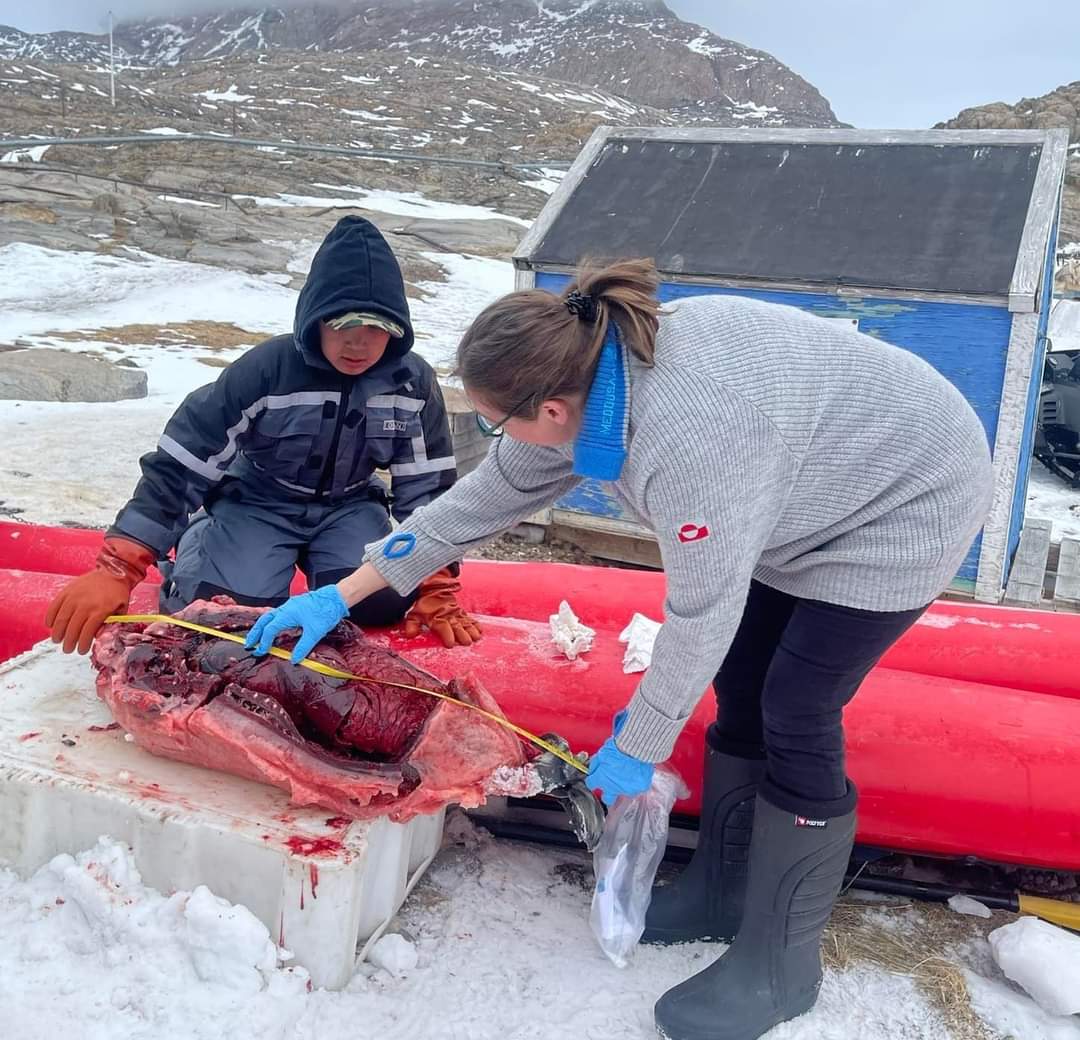 Uummannaq Polar Institute |  |
 Uummannaq Polar Institute |  |
Eqalugaq projectProject Title: The Eqalugaq Project - Co-producing knowledge on polar cod in Greenland Climate change is rapidly transforming the Arctic marine environment. Sea surface temperatures are increasing and sea ice is vanishing at unprecedented speeds. The responses of Arctic marine ecosystems to these changes will have important consequences for people living in Greenland, where cultural identity, food security and socioeconomic systems are closely linked with marine ecosystems. A crucial species of Arctic marine ecosystems is polar cod (Boreogadus saida, Greenlandic: eqalugaq, Danish: polartorsk). Everything you love about the Arctic comes down to polar cod. Many iconic Arctic animals are directly or indirectly linked to polar cod. For example, narwhal (Monodon monoceros), beluga whale (Delphinapterus leucas) and ringed seal (Pusa hispida), rely heavily on polar cod to ingest the energy and fat necessary to survive in cold Arctic waters. Polar bear (Ursus maritimus) prey primarily on ringed seal, hence indirectly also depends on polar cod for survival. Changes in polar cod populations in response to climate change will have cascading effects on entire ecosystems. The Eqalugaq project is bridging natural science (also named western science) and local knowledge (also named traditional knowledge, indigenous knowledge, traditional ecological knowledge, inuit knowledge, users' knowledge) towards a better understanding of rapidly-changing Greenland marine environments. The overarching goal of the project is to provide new scientific knowledge on polar cod and its ecosystems in Greenland, to potentially help the country to develop adaptation strategies to better cope with the ongoing climate change. Project Aim: The project aims at building partnerships with Uummannaq Fjord fishers and hunters that are based on mutual respect and trust. With UPI as collaborator, we also integrated the children in our scientific activities, for example ringed seal sampling and stomach content analyses. Children are very interested in animal life around them, and we hope the hand-on experience provided by our project can provide meaningful learning opportunities for the children, and raise their interest in science. Project Team: The project team in Uummannaq includes Caroline Bouchard (scientist), Heidi Andreasen (scientist), Patrick Farnole (scientist), Simmi Løvstrøm (fisher/hunter), Ole Møller (fisher/hunter), Hans Grønvold (fisher/hunter), and is conducted in collaboration with the Uummannaq Children's Home, the Uummannaq Polar Institute and the Greenland Institute of Natural Resources. The project is funded by the Greenland Research Council and the Danish Environmental Protection Agency. |
Photos 
|
|
Visit UPI on |